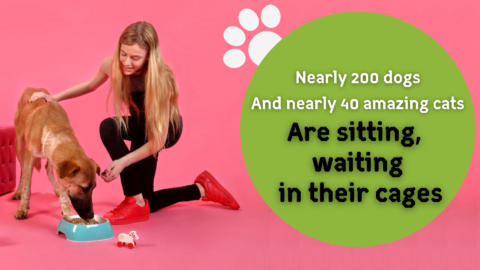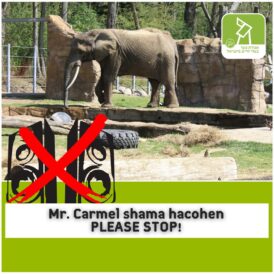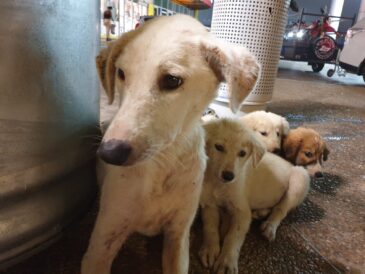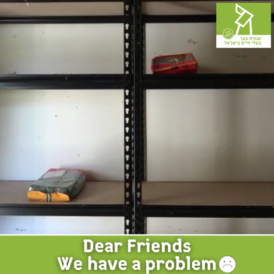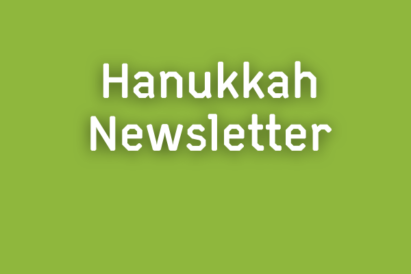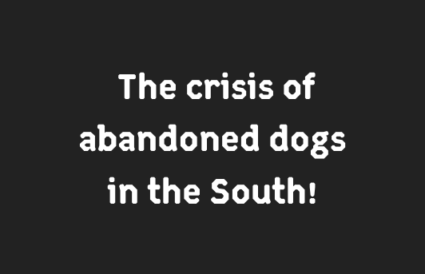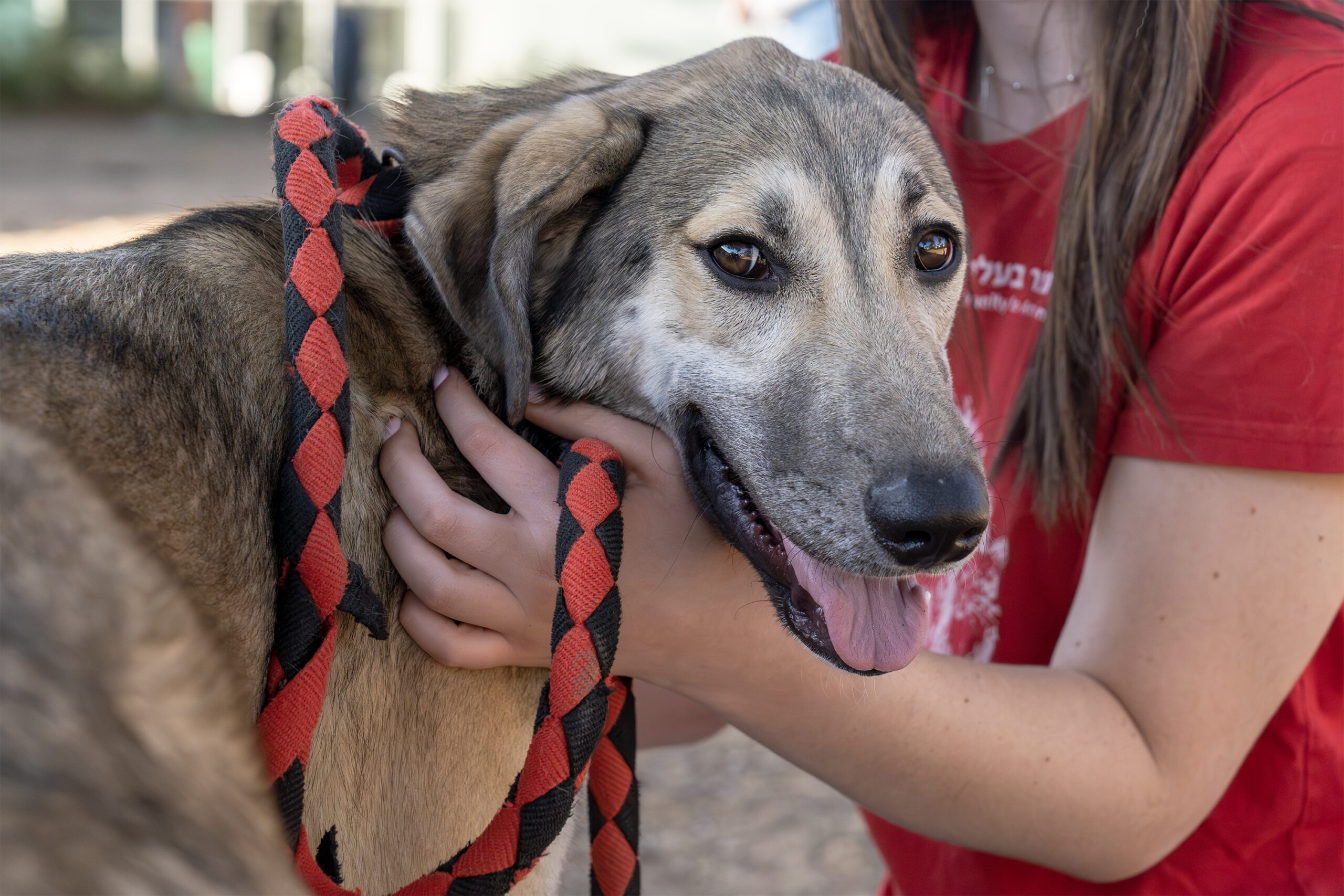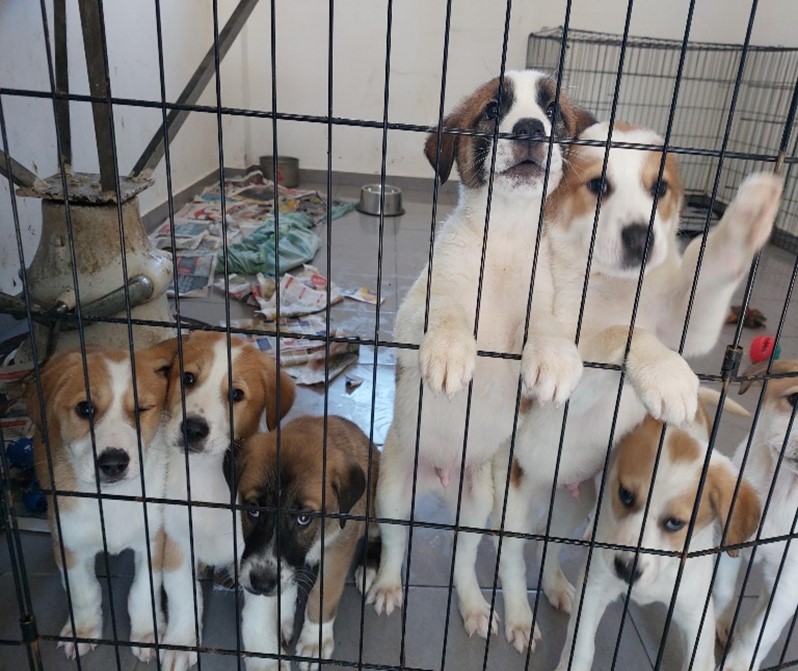For many people, the horse represents freedom, and in their imaginations they see noble horses galloping happily in wide, open spaces or being cared for and pampered in professional stables. Unfortunately, such imaginary scenes do not represent the reality, and even in the 21st Century, many horses and donkeys are used as vehicles and suffer criminal neglect and abuse on a daily basis.
The True Picture
Many horses and donkeys are driven to work beyond their capabilities by their owners, and in absolute contradiction to all animal welfare laws: The owners harness the animals to extremely overloaded carts, slave-drive them under terrible conditions for hours on end, without food and water, they beat them mercilessly, rent them out to others, neglect their medical problems which consequently worsen as time goes by, and sometimes they even abandon the animals when they have no strength left to go on.
It is not rare for unsuitable harnessing to be improvised including the use of rusty and harmful metals that cause the unfortunate animals damage from chafing, deep wounds and severe infections. Often they fall victim to intended and cruel abuse at the hands of their owners or strangers. In addition, the carters have difficulty integrating into the city traffic thus endangering not only themselves and their animals, but also drivers, passengers and passers-by.
Donkeys and horses are animals with very high pain tolerance levels,able to function under very tough conditions, even when are suffering from medical problems. They persevere till they reach the critical point, when they collapse. The health conditions of these neglected horses and donkeys is disgraceful, and without professional care they are slowly dying in agony from their wounds, illness, starvation and dehydration.

The Absorption and Rehabilitation Process
Since its foundation in 1927, SPCA Israel has been taking in horses and donkeys suffering from neglect and abuse and taking care of their rehabilitation. These animals usually reach us following reports from passers-by from all over the country, and the Society is one of the only places that takes them in and cares for them. For this reason it is very important not to turn a blind eye to the sight of a neglected horse or donkey, but to report any such instance immediately to the local authorities, the police or the Society.
As mentioned, many horses and donkeys reach us in grave medical condition, suffering from under-nourishment, all kinds of injuries, arthritis, rotting hooves, infections and other health issues requiring long periods of rehabilitation.
When horses and donkeys reach the Society, they undergo medical examination by veterinary specialists in this field. They are then examined by expert hoof trimmers and horse shoe professionals. In accordance with these professionals’ recommendations, treatment is undertaken. This treatment usually includes hoof trimming and shoeing on an ongoing basis, various vaccinations (rabies, tetanus, flu), worming and implanting of microchips. The rehabilitation process, which can last for several months, depends upon the specific diagnosis for each animal, including food additives and vitamins, various types of surgery and physiotherapy.
The high costs involved in treating horses and donkeys can reach tens of thousands of Shekels per month, but despite the financial difficulties, we are proud of the fact that in the last five years, the Society has treated and cared for over 500 animals throughout the country, all of whom were rehabilitated and for whom new homes were located.
Finding a New Home
The period of time that the animals remain in the Society’s stables varies according to their medical condition and depends also upon when a new home can be found for them. Every application to adopt is thoroughly checked, and staff members from the Society go to visit every potential home to ensure with absolute certainty that the future owners have proven experience with rearing horses and donkeys and that the animals will be under veterinary supervision at all times. The horses and donkeys are given to the new owners at no charge, who, in turn, have to guarantee that they will return the animals to the Society if they find that they cannot, for any reason, continue to take care of them. These immense efforts are made to ensure that the horses and donkeys, that were the victims of so much abuse and neglect, will live comfortably, receive appropriate treatment and will not be dragged back into the cycle of suffering from which they have just be saved.
At the same time, the Society is working at minimizing the animals’ suffering at the parliamentary level by promoting laws that protect their welfare and on the legal level by bringing to justice those responsible for the criminal abuse of these animals.

Hoof Trimming and Shoeing
Hoof neglect and erosion in horses and donkeys reaching the Society are common phenomena requiring long-term, expensive treatment by professionals in this field. Horses and donkeys require on-going care of their hooves. When this care is not given, the consequences are severe pain and difficulties that can cause distortion, lameness, open wounds, infection and so on.
The role of the horse’s iron shoe is to protect the hoof from erosion. During the shoeing process, which is carried out every few weeks, the existing shoe is removed, the hoof is shortened, then trimmed and shod with a suitable shoe. When horses are not treated professionally and the shoeing is done amateurishly, the horses suffer from severe pressure on the hoof that can lead to arthritis, pulled tendons and muscular problems.
Help us to help them
The rehabilitation process for horses and donkeys is protracted, complex and very expensive as it includes costs of high quality food, medical treatment and comprehensive professional care.
Approximately 20 horses and donkeys are cared for in the Society’s stables, with the average monthly cost of the upkeep and care of each animal reaching sums of over NIS 3,000. We do our utmost to provide optimal conditions during the rehabilitation period along with the best care by leading veterinarians, all of which can be accomplished thanks to the contributions made by a number of special people.
In order to meet the challenge of this important goal, we need your help with contributions to cover these ongoing costs, as well as to improve the conditions for the horses and donkeys staying in the Society (purchase of specialized equipment, renovation and expansion of the stables, costly surgery, and so on).

